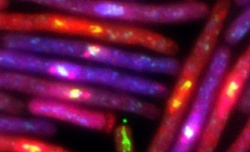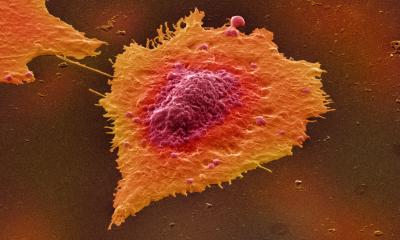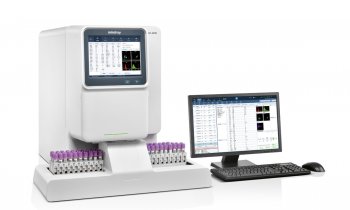Synthetic biology
Timing is everything in cells
Everyone who has played in a band or orchestra knows that playing in time creates music, while playing out of time creates cacophony. In an orchestra, each player may be out of tune when warming up, but eventually, all players must reach the same pitch, rhythm, and timing to produce a viable piece of music.

Findings by a team of researchers with the Virginia Bioinformatics Institute at Virginia Tech and international collaborators show that the same is true of cells — timing is indeed everything. For cells, there is a particular challenge to keeping in time: Imagine entire notes and bars were removed from a piece of music just as the orchestra players were attempting to start.
This happens in cells. The starting conditions for each cell vary, yet the timing in processes like cell division needs to be maintained. As the research team found, cells have adaptive mechanisms that ensure perfect timing despite potential differences.
The study has implications for cancer research, as scientists try to understand how cells avoid errors that promote cancer development. It could also be useful in synthetic biology, where scientists work to make robust mechanisms for synthetic life. “We were astonished to see how greatly the starting conditions for each cell could differ and still lead to the same outcome,” said Silke Hauf, a biology fellow at Virginia Bioinformatics Institute and the corresponding author of the study.
Cells modulate the exact timing of when crucial cellular events happen, slowing down or speeding everything up to make sure everything is playing its proper part at the right time. “To stay with the musical analogy, cellular players influence each other,” said Julia Kamenz, lead author of the study and a postdoctoral researcher at Stanford University. “When different players slow down, others slow down; when one speeds up, another speeds up as well."
The study addresses the larger problem of how cells cope with naturally occurring variation, which is an unavoidable consequence of cellular physiology. This is particularly important in processes like cell division, which are essential for survival and need to be executed with high accuracy. “This study is a big step forward in elucidating mechanisms of cellular robustness,” said John Tyson, a University Distinguished Professor of Biological Sciences in the College of Science at Virginia Tech.
Source: Virginia Tech
11.11.2015











